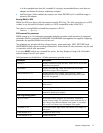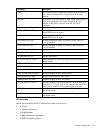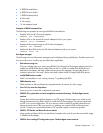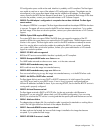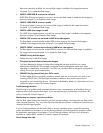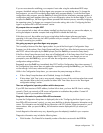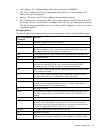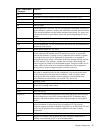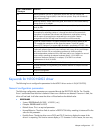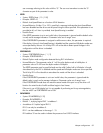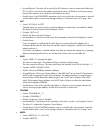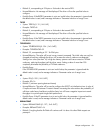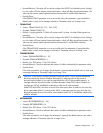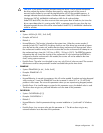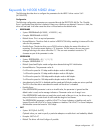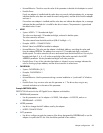
Adapter configurations 81
Term / Abbreviation
/ Acronym
Definition
RIS Remote Installation Services. A Microsoft® service that uses PXE to deliver the
Network Bootstrap Program (NBP) to start the boot process. Ships with Windows®
2000 Advanced Server.
ROM Read-Only Memory. When used in this guide, ROM refers to a non-volatile memory
storage device on an adapter
RPL Remote Program Load. A bootable network device protocol, developed and used
mostly by IBM.
TCO Total Cost of Ownership. Business models often calculate the approximate total cost
of ownership for technology initiative \s through formulas that incorporate both
expenditure on hardware and software and maintenance, replacement, training,
and all aspects of business that are impacted by the core system. Remote
management tools like PXE help lower the overall cost of the ownership.
TFTP Trivial File Transfer Protocol. An industry standard internet protocol defined by the
IETF to enable the transmission of files across the internet. Trivial File Transfer
Protocol (TFTP, Revision 2) to support NBP download is specified by IETF RFC 1350.
UNDI Universal Network Driver Interface. UNDI is an architectural interface to adapters.
Traditionally adapters have had custom interfaces and custom drivers (each adapter
had a driver for each OS on each platform architecture). UNDI provides a
hardware-dependent mechanism for the PXE base code to use a adapter for network
access without controlling the adapter hardware directly. H/W UNDI is an
architectural hardware interface to an adapter; S/W UNDI is a software
implementation of the H/W UNDI.
URL Uniform Resource Locator. The address of a file (resource) accessible on the internet.
USB Universal Serial Bus. A Plug and Play (PnP) interface between a computer and add-
on devices.
WfM Wired for Management
WOL Wake on LAN
Keywords for N100 NDIS2 driver
The following how to configure the parameters for the NDIS 2 driver version 4.56 (N100 DOS).
General configuration parameters
The following configuration parameters are supported through the PROTOCOL.INI file. The "Possible
Errors" section describes the driver's behavior when error conditions are detected. If an error is fatal, the
driver will not load. In all other cases the driver will load and use the default value.
• DRIVERNAME
o Syntax: DRIVERNAME=[N100$ | N1002$ | etc]
o Example: DRIVERNAME=N100$
o Default: None. This is a required parameter.
o Normal Behavior: The driver finds its section in PROTOCOL.INI by matching its instance ID to the
value for this parameter.
o Possible Errors: The device driver uses a DOS and OS/2 function to display the name of the
driver it is expecting. This function cannot display a "$" character. For this reason, the user may



